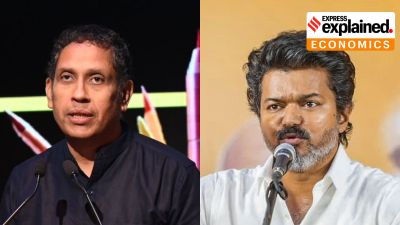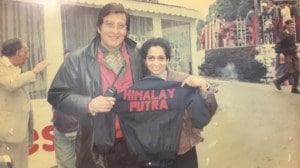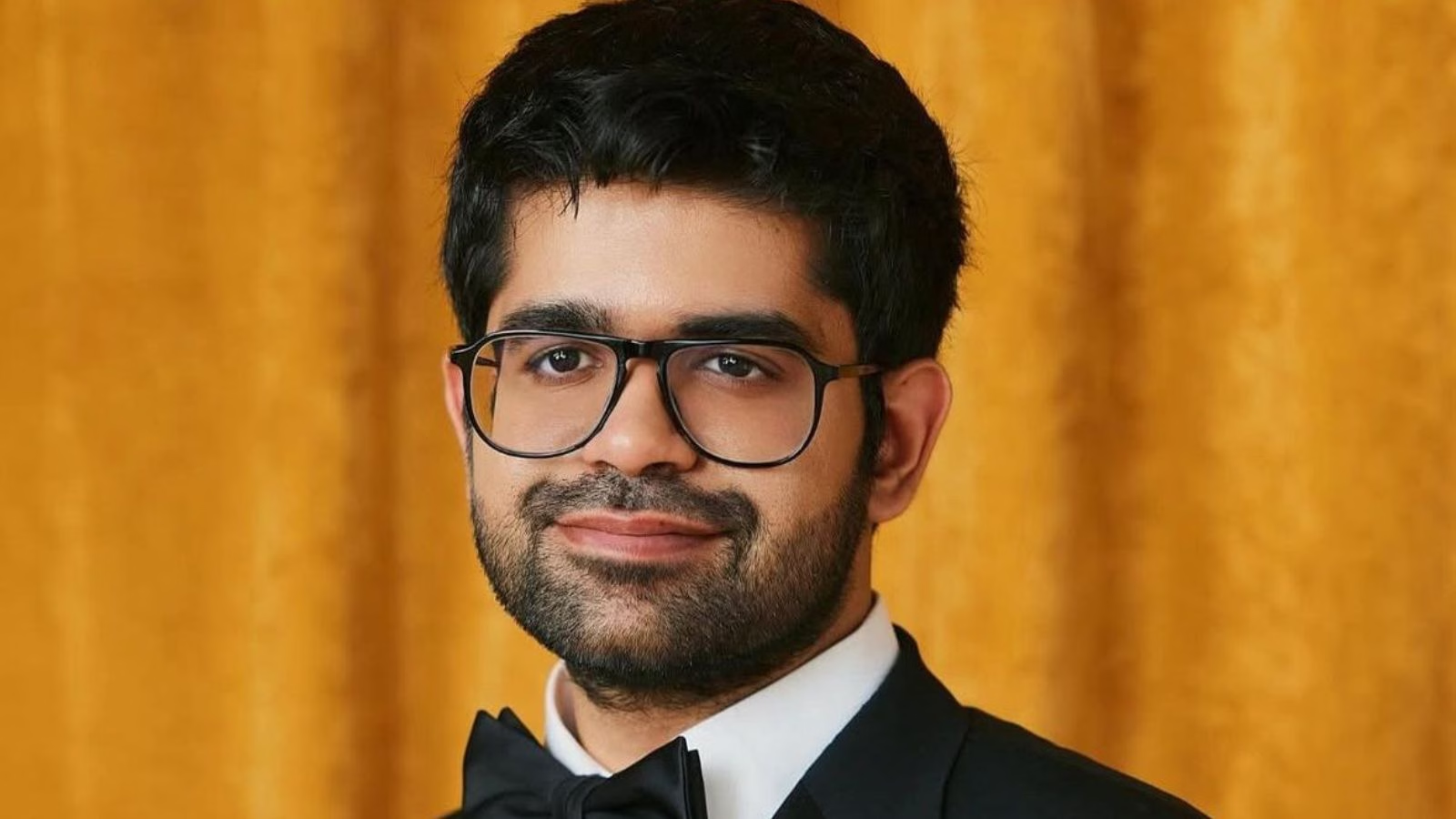Getting serious about playtime
Utpal Bhayani has reviewed in Gujarati more than 500 plays performed in Mumbai. Sanga-bhoomi Image Publications, 1997, his fourth collecti...

Utpal Bhayani has reviewed in Gujarati more than 500 plays performed in Mumbai. Sanga-bhoomi Image Publications, 1997, his fourth collection of reviews is about 119 plays in Gujarati, Marathi, Hindi, English and other languages staged during six years from 1990. Three earlier collections 8212; Drishya-falak 1981, Preksha 1986 and Tarjanisanket 1992 chronicle nearly 15 years of theatre from the mid-seventies.
One would dare say that no other drama critic in the country has contributed so much to newspaper theatre criticism with such an articulate expression of sensibility. This makes Bhayani something of the Indian counterpart of the likes of James Agate, Kenneth Tynan and Eric Bentley.
The pieces in the review quartret were originally Bhayani8217;s weekly contributions to the Gujarati daily Janbhoomi-Pravasi, published from Mumbai. The country8217;s financial capital is also the hub of stage activity, which Bhayani covers with commendable vigour.
The latest collection comprises, like the earlier ones, accounts of the perennial Marathi theatre of all three types: parallel, professional and folk. Besides, he writes about plays put up by international troupes, which invariably include Mumbai in their Asian tours. Besides, Mumbai is the most conducive centre for English theatre in the country. Hindi plays are also frequent.
Prithvi Theatre, the National Centre for Performing Arts, Chhabildas School, the British Council are all organisations that showcase the theatre of the country and the world. Professional Gujarati drama, with all its glitz and glamour, has flourished not in Gujarat but in Mumbai.
Ironically, it is Gujarati theatre with which Bhayani is most unhappy. Its commercialisation in the hands of the stage community and devaluation in the eyes of the audience have cut him deep. Good taste and sensitivity are his concerns. He knows from the other theatres 8212; especially Marathi 8212; that these are not abstract concepts but attainable qualities.
Time and again he holds the Gujarati people8217;s philistine tendencies of reducing theatre to mere 8220;Sunday evening fun8221; for this state of affairs. There are no Gujarati plays about which one can speak 8220;after the curtain falls8221;.
In the review of a farcical Gujarati play Aflatoon, he notes: 8220;What the rag is to a child playing with it, stereotype plays are for the Gujarati audience. A little novelty, a little depth, absence of famous names upset them.8221;
However, such incisive comments are fewer and often concealed, in comparison to Bhayani8217;s earlier works. The sharp edges have become blunt with the relentless slide of the Gujarati theatre.
The reviews of the plays like Family Album, Shikast and Pati Naame Patangiyun are a case in point. The change is most evident in the reviews of two plays Chaurangi and Vevishal, directed respectively by the well-known Suresh Rajda and Upendra Trivedi.
Names, of course, are not sacrosanct to Bhayani. Like Agate, he has no touchstones8217; for judgement. The limitations of Habib Tanveer8217;s plays are exposed in a few sharp phrases. Saoli Mitra too, has her turn, though in a sober tone. Alyque Padamsee8217;s Othello, with Kabir Bedi in the title role, is nothing more than a 8220;bizarre shadow8221; of the original.
Even the prestigious Prithvi Theatre Festival of 1996 had serious drawbacks, according to Bhayani, though he is all praise for some of its excellent productions. On the whole, however, the event disappointed because it allowed many 8220;performances which had no drama8221;.
Such remarks speak of the awareness of the basics of drama and a healthy common sense, which save Bhayani from snobbish quibbling. Even a streak of merit wins a pat from him. So does professionalism. Anything that shows a little promise, like the Gujarati presentation of Oedipus, delights him.
Bhayani8217;s passion for Gujarati culture can be partly attributed to his genes: he is the son of octogenerian Gujarati linguist and literary stalwart Harivallabh Bhayani. His father8217;s son has to his credit two anthologies of short stories, besides the translation of Peter Brook8217;s Mahabharata and two books of serious articles on theatre.
Curously Bhayani, 54, is a chartered accountant. But he might not be better equipped for his profession than for drama! His study of theatre is vast. The wealth of information and insights in his judgement are both hard-earned. His constant study of theatre includes many things.
Unlike most drama reviewers, he necessarily studies the script and other source material. He is said to have developed a rare and rich personal library which has books, brochures, catalogues, periodicals, picture collections apart from books. Some of these are collected from his play-watching trips abroad.
Bhayani8217;s reviews evince also that he is well-informed about several drama-related subjects such as theatre architecture and management, costume designing, social history, lives of stage persons and the like.
Most of Bhayani8217;s reviews neatly balance observations on the script and the performance. His candour is often mistaken for bluntness. His emphasis on quality is taken for an unrealistically high-brow attitude. Economy and subtlety are the hallmarks of his polished Gujarati.
Had this chronicler of theatre been writing in English, he would have been at a higher place than many lesser men in his field. Had he been writing in Marathi or Bengali, he would have at least had more readers.
- 01
- 02
- 03
- 04
- 05































